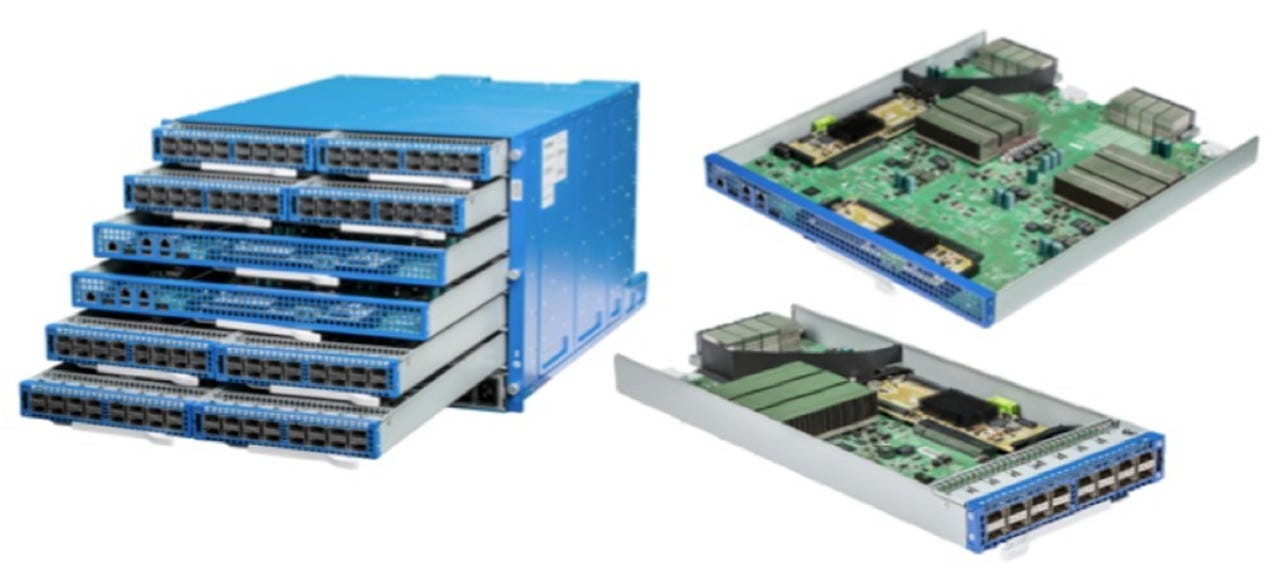Facebook unveils SoC, open hardware, software framework for data centers


Facebook has unveiled its first system-on-a-chip (SoC) compute server as one of its contributions to the Open Compute Project.
More about Facebook's infrastructure:
Codenamed Yosemite (and not to be confused with an iteration of Apple's Mac OS X software), the SoC is designed to support up to four independent servers while promising better performance and cost savings per watt when compared to traditional data center servers.
"In hardware design, there are two approaches to solving the vast computing needs of a site like Facebook," wrote Facebook engineer Hu Li on Tuesday. "There's the approach of 'scale up' -- building ever-increasing amounts of computing power in a given system."
The alternative, he continued, is to scale out by building a fleet of systems each running moderate amounts of energy.
Li explained Facebook engineers built the modular chassis with the Yosemite SoC "to provide our infrastructure with capacity that scales out with the demand."
Yosemite has been configured for compatibility with Open Rack, which in turn can accommodate up to 192 SoC server cards in a single rack. Mellanox has also enabled multi-host support for its ConnectX-4 OCP Mezzanine Card.
Also introduced amid the annual OCP Summit in Silicon Valley on Tuesday, Facebook rolled out an open software framework, OpenBMC, for system management.
Facebook software engineer Tian Fang explained in a blog post how previous (and closed) versions of Baseboard Management Controller (BMC) tech typically inhibited even the most basic system and infrastructure management controls, such as monitoring server host CPU and memory.
Fang wrote:
Until now, on the software side, the complete BMC software stack was closed. BMC software is usually developed by the hardware manufacturer during the hardware-development phase. Because the BMC software was closed, whatever was developed for the existing hardware could not be reused for the next generation. The long BMC software schedule directly affected new hardware development. When hardware development ended, the BMC software development stopped as well. Further bug fixes or new features had to wait for the hardware manufacturer.
Although still in its early stages, OpenBMC is available now via GitHub.
Along with the open software framework, Facebook also has related open hardware developments.
Chief among them is Wedge, a new top-of-rack network switch, along with a Linux-based operating system for that switch, codenamed "FBOSS."
Weaved together with its internally configured data center fabric, Facebook engineers boasted to have crafted the first open modular switch platform -- altogether producing a "6-pack" no less.
Yuval Bachar, a hardware networking engineer at Facebook, outlined in a separate blog post how "6-pack" differs from traditional modular switches through "an architecture that enables us to build any size switch using a simple set of common building blocks."
The world's largest social network also reinforced its ongoing OCP-related partnership with Intel.
Intel and Facebook collaborated for nearly two years on SoC technology based on Intel's new Xeon processor D product family, the chip maker's first Xeon-based SoC that debuted on Monday.
Facebook previously contributed to a common slot architecture specification for motherboards, accommodating SoC circuits supported by Intel, AMD, Calxeda, and Applied Micro.
Facebook's homegrown data center technologies are well established by now, with footprints from Oregon to Sweden.
The Menlo Park, Calif.-headquartered company most recently bolstered its data center in Altoona, Iowa last November with a data center fabric described as a next-generation architecture developed for speeding up machine-to-machine traffic at scale.
Such objectives are critical for Facebook as the social media brand continues to rely on mobile channels for much of its revenue.
Several other top tech brands touted news at the start of the 2015 OCP Summit this week.
Broadcom opened up a bevy of products aimed toward third-party developers for building upon its StrataXGS data center switches. The processor business is especially targeting networking OEMs and operators, device manufacturers and independent software vendors.
Hewlett-Packard followed with a new set of servers designed for hyperscale cloud providers favoring white box gear. The server family, dubbed Cloudline, is the result of a joint venture with Hon Hai's Foxconn.